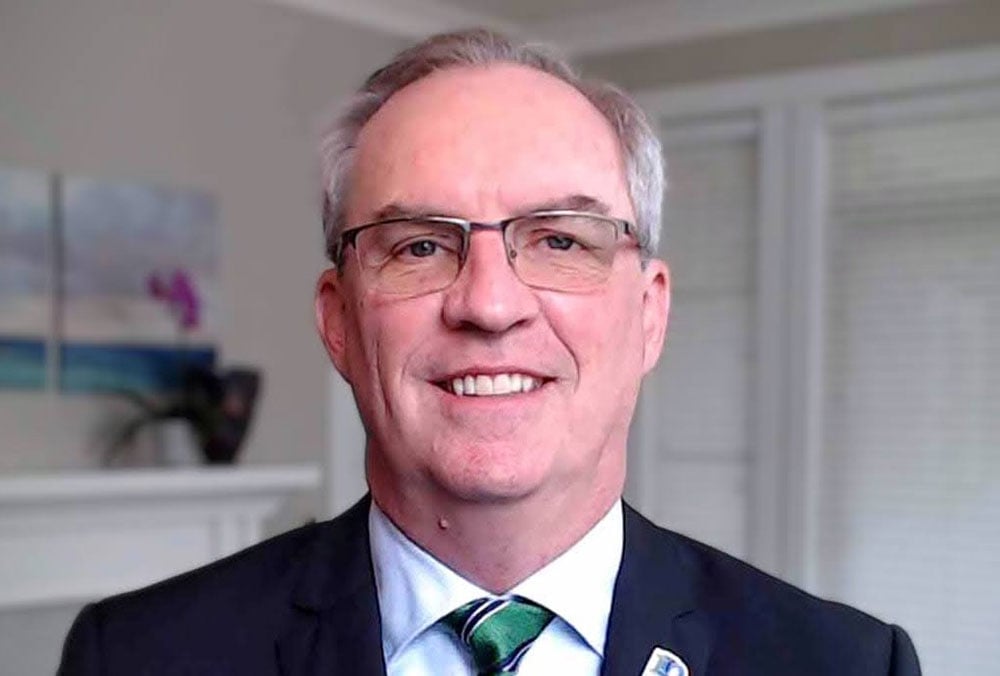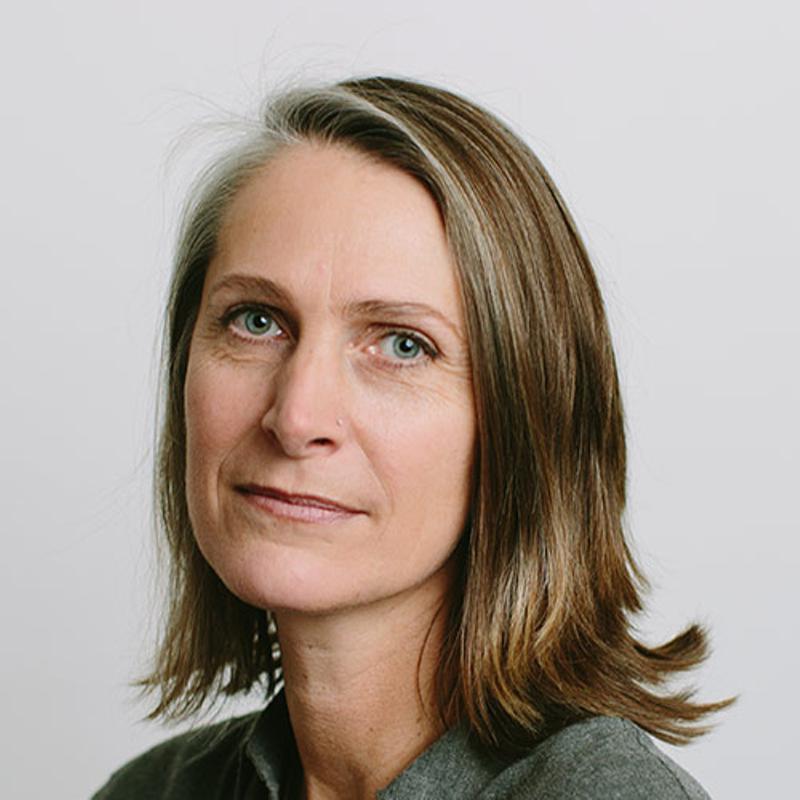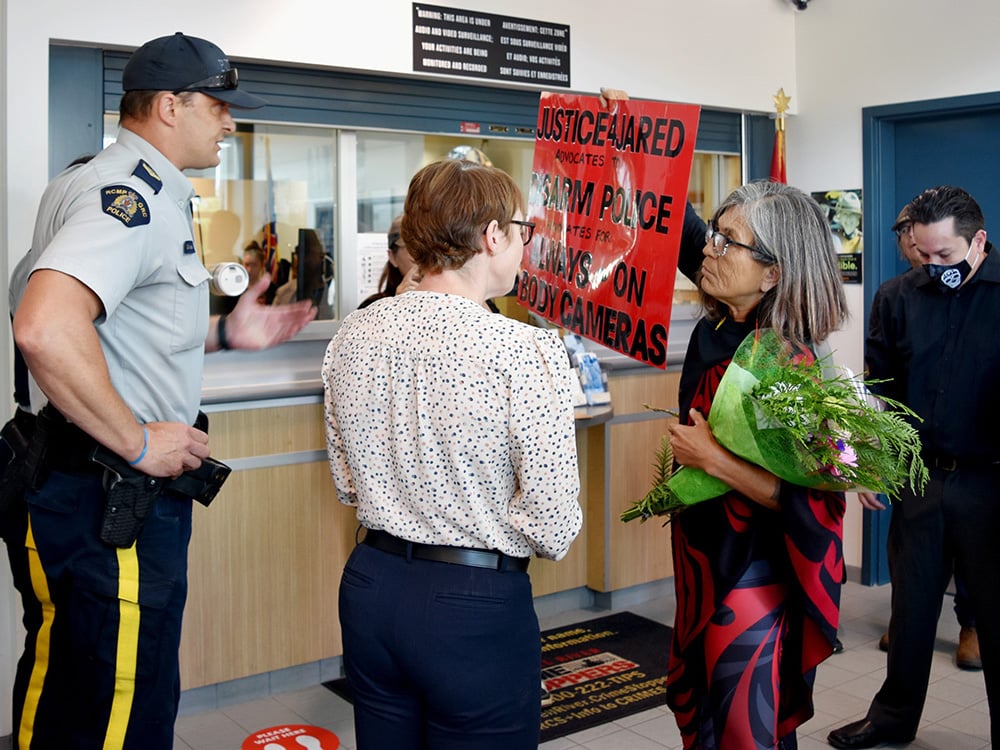The head of B.C.’s police watchdog wants the government to review the BC Prosecution Service’s handling of his office’s recommendations for criminal charges against officers.
Ron MacDonald, the Independent Investigations Office of BC chief civilian director, said statistics collected by his office show a low number of prosecutions in cases where his office has investigated officers’ actions and submitted a report recommending charges to the prosecution service. The IIO investigates all police-related incidents that result in death or serious harm.
That’s leading to a loss of public confidence in the systems that are supposed to be holding police accountable, MacDonald said. He plans to ask Attorney General Niki Sharma, responsible for Crown prosecutors, to investigate.
MacDonald says the prosecution service has approved recommended charges against police officers less than 50 per cent of the time over the past five years. That’s much lower than the approval rate for criminal charges recommended by police agencies against other potential offenders.
Of the 15 charges against police officers that have been approved and gone to trial since 2012, none has resulted in a conviction. That figure does not include instances where officers have taken a plea deal.
MacDonald said the prosecutions are of significant public interest.
“It’s important, when you start to see charge approval rates that are much lower than normal — and successful prosecution rates that are much, much lower than normal — that it’s appropriate to have some form of independent review of that,” MacDonald said.
“And that’s what I will be asking the minister’s office to consider.”
MacDonald said he plans to submit the request, along with a report on the situation, to the Public Safety Ministry before he retires from the IIO on May 8.
MacDonald made the comments after the BC Prosecution Service declined to lay any charges against the RCMP officers who shot Jared Lowndes, a 38-year-old Wet’suwet’en man. Lowndes died on July 8, 2021, in Campbell River after he was pursued by RCMP officers who attempted to subdue him with a police dog, a Taser and gunshots and by smashing into his car with a police vehicle.
That announcement followed an April 5 decision by the prosecution service to stay charges against two RCMP officers charged with manslaughter last year in the death of Dale Culver, who was Wet’suwet’en and Gitxsan.
Culver was pepper-sprayed and punched in the head while being arrested in Prince George on July 18, 2017. An original autopsy found that police actions likely contributed to his death, which was initially thought to be caused by tiny blood clots in Culver’s lungs. Blunt force head trauma was a contributing factor, the autopsy found. Two officers, Const. Paul Ste-Marie and Const. Jean Francois Monette, were charged with manslaughter.
After receiving the results of the autopsy, MacDonald said the IIO took the step of asking two more pathologists to review the autopsy, and those three opinions were the basis for the IIO’s decision to submit a charge report.
“In that case, in particular, we actually asked for followup and the original opinion was completed by one pathologist at the coroner service,” MacDonald said. “That was reviewed by an additional two pathologists, and they confirmed the original opinion. They actually added a bit of clarity, and that formed part of the package that we sent to Crown.”
But Crown prosecutors said that outstanding questions about the cause of death led the service to seek an independent review of the pathology results earlier this year.
Ontario’s chief forensic pathologist, Dr. Michael Pollanen, disagreed with the original findings of the three pathologists who had previously worked on the case.
Pollanen said the cause of death was cardiac arrest due to the effects of methamphetamine following a struggle.
That led prosecutors to determine there was “no longer a reasonable prospect of conviction” in the case, according to a statement from the BC Prosecution Service.

MacDonald said the system is weighted towards defending the actions of police in other ways. In cases where the IIO is investigating whether the use of police force was appropriate, the BC Prosecution Service requires the watchdog to provide a use of force expert. In Canada, use of force experts are all current or former police officers.
“The prosecution service wants us to provide an opinion from those individuals as to whether or not the actions of the officers were consistent with training. Our view is that often is not necessary,” MacDonald said.
“In some cases that have gone to trial where the Crown has called use of force experts, that evidence has actually been used by the court to support an acquittal.”
MacDonald told The Tyee that when he looked at the totality of the actions police took as they pursued Lowndes, it was his assessment that it met the standard for a charge report. He said the need for police to try to de-escalate a given situation, the use of a police dog in Lowndes’s car and the gunshots officers fired when Lowndes exited the vehicle armed with a knife were all factors he considered.
“It was the whole of the circumstances taken together, in addition to the actual facts of the use of force applied,” MacDonald said.
On Tuesday, Lowndes’s mother, Laura Holland, called for an inquiry into the high numbers of Indigenous people who have been killed by police in Canada.
“I will continue to fight for justice for all Indigenous people who have been killed,” Laura Holland told reporters following a meeting with Crown prosecutors in downtown Vancouver.
“I will continue, and if it means we need an inquiry into why they’re doing this... to change some of the policies and procedures that [the BC Prosecution Service is] bound by, if we need to continue to address systemic racism, we will do that.”
MacDonald said Indigenous people are overrepresented in cases handled by the Independent Investigations Office. Between 2020 and 2024, data collected by the IIO shows that Indigenous people represented between 18 and 30 per cent of cases investigated by the police watchdog agency. Indigenous people are just six per cent of British Columbia’s total population.
“That’s a significant overrepresentation,” MacDonald said.
In a statement, the First Nations Leadership Council called for accountability from the BC Prosecution Service, highlighting that Indigenous people are 10 times more likely to be killed by police than non-Indigenous people.
“This tells us that the system is broken beyond repair,” said Grand Chief Stewart Phillip.
Hugh Braker, a member of the First Nations Summit, said the system is currently equivalent to the death penalty still being in force.
“Had Mr. Lowndes been arrested and convicted, he probably would have received a prison sentence of a year or two,” Braker said. “Instead, the police gave him death.”
* Story updated on April 26 at 10:27 a.m. to correct who oversees the BC Prosecution Service and clarify statistics provided by the Independent Investigations Office. ![]()
Read more: Indigenous, Rights + Justice, BC Politics

















Tyee Commenting Guidelines
Comments that violate guidelines risk being deleted, and violations may result in a temporary or permanent user ban. Maintain the spirit of good conversation to stay in the discussion and be patient with moderators. Comments are reviewed regularly but not in real time.
Do:
Do not: